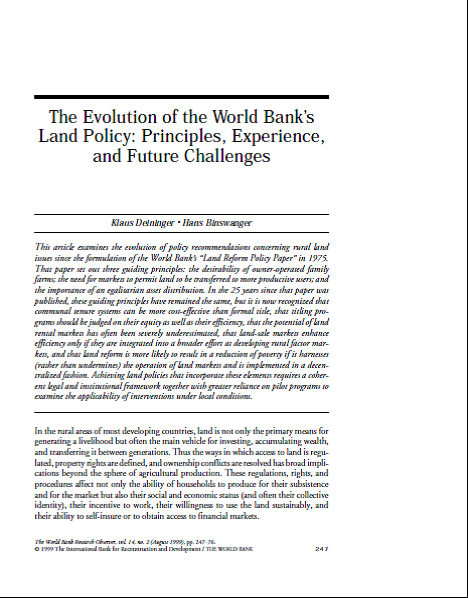The Evolution of the World Bank’s Land Policy: Principles, Experience, and Future Challenges
This article examines the evolution of policy recommendations concerning rural land issues since the formulation of the World Bank’s “Land Reform Policy Paper” in 1975. That paper set out three guiding principles: the desirability of owner-operated family farms; the need for markets to permit land to be transferred to more productive users; and the importance of an egalitarian asset distribution.




